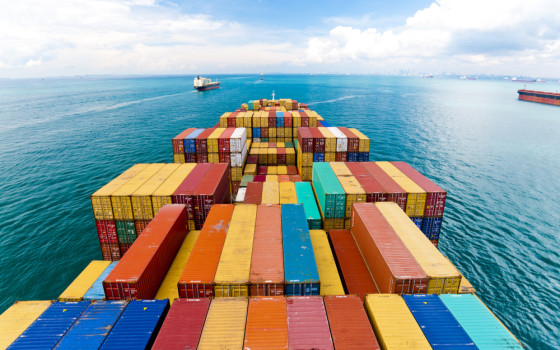
Belgium supports the renewal of the Grain Initiative in order to address the global food crisis exacerbated by Russia's aggression against Ukraine

- Europe and Arabs
- Sunday , 19 March 2023 15:8 PM GMT
Brussels: Europe and the Arabs
Belgium welcomed the renewal, on March 18, 2023, of the Black Sea Grains Initiative (BSGI), signed on July 22, 2022 by the United Nations, the Russian Federation, Turkey and Ukraine. A statement by the Belgian Foreign Ministry in Brussels said, "This initiative comes within the framework of international efforts, in which Belgium participates, to confront the tragic effects of the Russian aggression against Ukraine on global food security." The Russian aggression has already exacerbated the global food crisis through bombing energy, water and transport infrastructure, as well as blocking grain and fertilizer exports from Ukraine. These conditions have severely reduced global availability and access to food, increased prices, and placed many low-income countries in a more vulnerable position.
In this context, the renewal of BSGI is a positive development for these vulnerable partners. However, Russia's disinformation campaign seeks to reverse responsibilities: it was Russia's aggression against Ukraine that exacerbated the food crisis and not EU sanctions as Russia claims. The sanctions approved by the European Union do not target trade in agricultural and food products, nor in fertilizers between third world countries and Russia.
Quite the opposite. Belgium, in close collaboration with UN institutions and its European and southern partners, actively contributes to addressing the food security crisis on several levels:
Belgium cooperates effectively and fully with BSGI which was established through the facilities of the Secretary General of the United Nations and aims to facilitate agricultural food exports from Ukrainian ports.
Belgium also participates in the "Grains from Ukraine" initiative, launched by Kiev, with a contribution of 10 million euros. This allows the export of Ukrainian grain to the southern partners. Belgium was the first country to support this initiative, paving the way for other countries to do the same.
The European Union, through several "Team Europe" initiatives, is committed to addressing the food crisis and pressures on global markets in the short, medium and long term. This is in particular through the creation of “corridors of solidarity”, by road and rail, which are mainly intended to connect Ukrainian grain exporters and European businessmen at the logistical level.
The Belgian Development Cooperation also contributes to combating food insecurity through flexible, non-earmarked contributions to humanitarian aid and contributions to programs aimed at supporting the transition towards more sustainable food systems, as well as combating the food crisis in least developed countries (LDCs).
In the context of scarcity, Belgium works closely with the United Nations, in particular the World Food Program (WFP), in order to facilitate the transportation of fertilizer components belonging to Russian companies, present in Belgian ports, towards the countries that need them most. Therefore, Belgium strongly rejects the accusations leveled by Russia against our country and other European partners regarding who is responsible for stopping these fertilizers.












No Comments Found